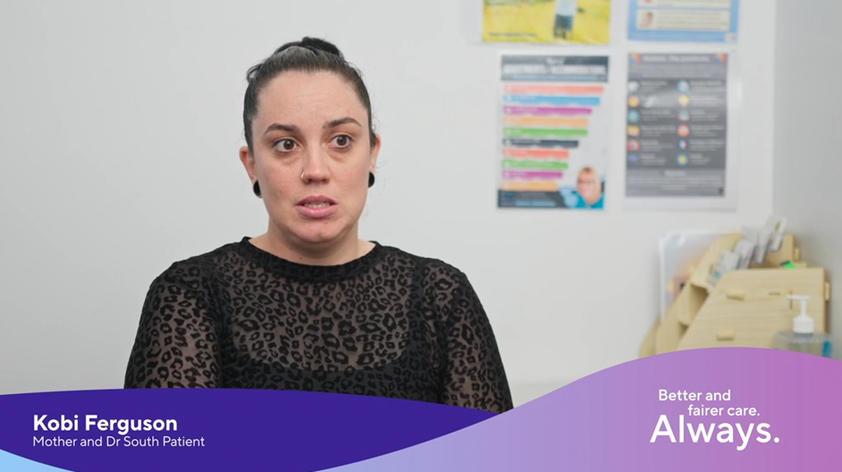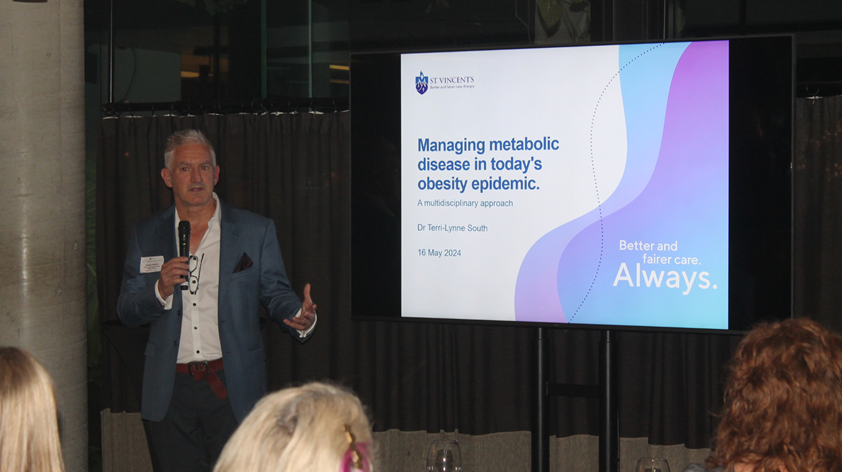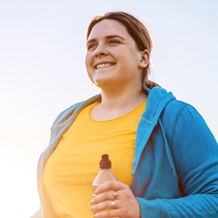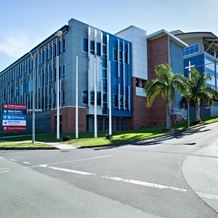SVHA partners with the RACGP to respond to the national obesity epidemic
St Vincent's Private Hospital Northside
St Vincent’s Health Australia is partnering with the Royal Australian College of General Practitioners on an initiative that aims to improve GPs confidence and knowledge to respond to the national obesity epidemic.
The Brisbane obesity and bariatric surgery symposia is a series of five free educational forums that will be held throughout this year for GPs with the first held on May 16 and the second one tomorrow night.

St Vincent's Private Hospital Brisbane and Northside CEO Oli Steele said the hospital is collaborating with the RACGP to assist time-poor GPs in applying best practice with their patients around what is one of the greatest health crises of the modern era, the obesity crisis.
"St Vincent's has a wonderful team of clinicians who are at the front line every day in dealing with the consequences of this epidemic and we know that one of the biggest issues with obesity is managing a range of metabolic diseases which arise," said Mr Steele.
"The obesity, bariatric surgery and metabolic health GP education series has been developed in collaboration with an expert panel of specialists, as well as the Chair of RACGP Specific Interest Group in Obesity Management.
“Our distinguished lineup of experts will develop a clinical partnership and multidisciplinary approach to the obesity epidemic covering topics such as disease prevalence, the association between obesity and heart failure, the impact of obesity related respiratory disease, Metabolic Associated Fatty Liver Disease (MALFD), common dietary approaches for weight loss and current techniques and successful outcomes of bariatric surgery.
“SVHA is very much looking forward to future collaboration with RACGP and Special Interest Group Chairs to develop expertise for their members and ultimately support the delivery of high-quality compassionate care to our patient community.”

Dr Terri-Lynne South
Dr Terri-Lynne South is a GP, Dietitian and Chair of RACGP Specific Interests Obesity Management and brings over 25 years of experience as a medical practitioner to the table. She aims to provide her patients with a comprehensive health service grounded in both evidence and extensive experience.
Dr South says that it's never been more confusing for people who are overweight or obese to navigate their way to better health or more complex for them to find their way through a deluge of advice – including weight loss and dietary - (especially in the media and in social media).
“Most patients who come and see me have already tried many things including a variety of diets only to see their weight yo-yo up and down and unfortunately, most end up where they started or even carrying more weight over the years,” says Dr South. “It’s rare that a patient comes to me to talk about weight loss, where they haven’t tried a number of things or that they say they’ve done nothing about it over the years.
“But it’s also increasingly complex and challenging for GPs to have the weight loss discussion with many patients. How do you bring up the conversation with a patient about their weight, respectfully without creating stigma and shame and have a productive discussion around how their weight is probably affecting their health?
“And to raise it in a safe environment when people are more sensitive than they used to be. It’s getting more difficult for GPs – especially with the ‘Body Positivity’ social movement gaining a lot of publicity and momentum.”
“Research shows obesity has a variety of impacts on health – including diabetes, sleeping disorders, cardiac issues, cholesterol and some cancers. But it’s not a short consultation for GPs especially if they’re trying to canvass various other health issues that might be related.”

Brisbane mother of two Kobi Ferguson, 35, is a patient of Dr South’s and says she had sought the advice of a number of GPs as she sought to reduce her weight from a peak of 92kg in the years after she had given birth.
“I gained over 20kg during my pregnancies and found it very hard to lose those extra, unwanted kilos for a variety of reasons and like many people who struggle with their weight, I’d been down that road of trying lots of diets and seeing my weight yo-yo up and down and I was frustrated by the lack of success,” says Kobi.
“I have tried Ozempic-style injectables but it didn’t really help and then I started consulting Dr South. That’s been fantastic as she has taken a whole-of-person approach with my health and looked at the bigger picture including my mental health and the history of my relationship with food and things like comfort eating, as well as looking at the big picture of my metabolic health.
“Going back to childhood, I didn’t have impulse control when it came to eating regardless of my hunger cues and that’s flowed through into adulthood. Dr South has me working with a dietitian and we focus on ‘good food for my body’. And while I’ve never been a ‘gym person’ I’ve been doing three personal training sessions a week and I feel the healthiest I’ve ever been and can now keep up with my young kids.
“We’re focussing on shifting my mentality, how I feel, the change in body composition and not the number on the scales and it’s working.”
And her message for other women struggling to lose weight and worried about their metabolic health?
“If what you’re doing isn’t working, don't give up. There’s always other options including working with a GP who’s open to taking that holistic approach to the patient’s complete health picture,” says Kobi.

Dr Paige Lanyon-Roberts
Dr Paige Lanyon-Roberts is another Brisbane GP and bariatric doctor with a special interest in metabolic health and the management of obesity. She says obesity is genetically-programmed but it’s made more complex by a combination of other factors such as environmental, social, psychological and behavioural.
“Obesity is a chronic disease and can’t be treated as a quick fix. The person who suffers from being overweight or obese will, in the majority of cases, have been dealing with it for a long time and will be dealing with it for the rest of their lives,” said Dr Lanyon-Roberts.
“We need to treat obesity like heart disease and to treat it as a lifelong problem. The challenge when patients consult with their GP about being overweight, we can’t usually provide a sufficiently long consultation to address the range of issues. You need to understand the patient as an individual and help them to find out what’s the key for them in terms of weight loss intervention.
“There’s only a certain number of interventions and they might not have found the right treatment or combination of interventions or treatments that can work for them. I believe there’s a suitable treatment for everyone. But as GPs we have to be proactive about treating obesity and the causes of it as there’s no doubt that for obese people, even they’re ‘metabolically well’ when they’re in their 20s, 30s and 40s, they’re definitely more at risk with complications from issues such as heart disease, diabetes and certain types of cancers as they age into their 50s and beyond.”
Dr George Hopkins is a leading upper gastrointestinal and bariatric surgeon at St Vincent’s Private Hospital Northside and Royal Brisbane and Women’s Hospital. He consults at Obesity Surgery Brisbane, a multidisciplinary clinic which is situated at the Integrated Health Hub in Chermside. Dr Hopkins is former president of the Australian and New Zealand Metabolic and Obesity Surgery Society (ANZMOSS).
In the last two decades, Dr Hopkins has been a leading exponent of new and emerging bariatric procedures and techniques. Dr Hopkins mainly performs primary gastric sleeve and gastric bypass surgery, as well as complex revisional surgery on patients throughout Queensland and sometimes interstate.
He says gastric bypass surgery is the oldest, most established weight loss surgery performed over the last 50 years and is the most effective procedure for weight loss. It changes the anatomy of the capacity of the stomach – dramatically reducing the appetite.

Dr George Hopkins

The type of surgery depends on the health profile of the patient, Dr Hopkins says, and bariatric surgery has become much safer with the volume of surgeries now done, especially in light of the international bariatric surgery guidelines being changed last year, lowering the BMI (Body Mass Index - the measure that provides guidance for doctors on patient selection, weight-loss procedures and obesity.)
That means that surgery is now suitable and permitted for people with a BMI of 35 – down from 40 – or a BMI of 30-35 for people with metabolic diseases (down from 35-40) such as diabetes or high cholesterol.
“What this change with the BMI has done is just shifted everything to the left to make things a little bit more accessible to people who are not diabolically sick and drastically overweight but who have for years had trouble losing substantial amounts of weight and keeping it off,” says Dr Hopkins.
“Although people shouldn’t have to wait until they get diabolically sick before they get the intervention. But the second part of it is that the evidence suggests that in the last decade the surgery has got so safe that it’s now reasonable to offer it to people with the lower BMI which is one of the reasons for the change.
“However I say to anyone considering weight loss surgery - the surgery is just the beginning and they need to be prepared to make lifestyle changes and especially change their relationship with food and exercise.
“Once they’ve had the surgery, there’s not much going back – you’ve got to keep going. It’s a major change – it’s not a small change in how people are living their life but for many people, it offers the best pathway to weight loss and a healthier and hopefully, longer life.”
Presenters at the first symposium were Dr George Hopkins, Dr Terri-Lynne South, gastroenterologist Dr Tom Zhou and dietitian Dr Somayyeh Firouzi.
Presenters at the second symposium were Dr David Mitchell, Dr Matthew Rickard, Dr Monica Wagenaar and Dr South.
St Vincent's Private Hospital Northside is proud to be a Major RACGP CPD Provider.
Related content


SVPHN GP Education Series - Bariatric & Metabolic Disease
The Bariatric & Metabolic Disease GP Education Series is a forum for education and collaboration.
Read More
- Home
- Patient News
- SVHA partners with the RACGP to respond to the national obesity epidemic

